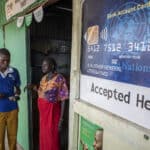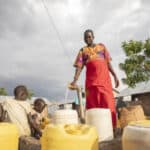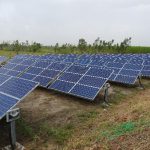I would tell other SMEs that feasible business opportunities abound, even in the most difficult business environment, like Kakuma/Kalobeyei. One can still carry out profitable business while providing sustainable impact for the community.
FAQ Group: kdii
KDII
What are the foreseeable impacts in the Kakuma and Kalobeyei area following your interventions?
Social Impact
Stigma around menstruation – Education and marketing awareness work together to eliminate stigma by enhancing women’s productivity and girl-child education.
Community inclusivity – KDII will be identified as a local economic empowerment project as a result of generating employment in both the refugee and host communities.
Economic impact
Accessibility to safe menstrual products will increase the economic productivity of women and girls by allowing women to work effectively even during their menstrual period, while girls will attend school without unnecessary interruptions. Employment opportunities for women at the production facility will facilitate economic empowerment. Due to the simplicity of the operation of the KRPP project, KDII will employ mostly women and youth (80%). Since the work does not require high skill, KDII will conduct training to empower youth to sell reusable pads, as well as encouraging them to work in the SMEs and local distribution networks.
Environmental impact
With the girls and women using KDII reusable pads, there will be a reduction in the excessive disposal of non-biodegradable single-use pads, either in toilets or in waste pits. In one menstrual cycle, a girl or woman can use up to 16 disposable pads. In one year, this translates into nearly 180 pads, yet the count can be sustained at just 5 reusable pads in an entire year.
What do you look forward to doing in Kakuma/Kalobeyei? How do you see your business growing in the next 5 years? What challenges have you had to overcome?
We seek to provide sustainable solutions for menstrual hygiene with safe and comfortable reusable pads along with MHM education for women and girls in Kakuma/Kalobeyei. The KDII pads will be produced in Kakuma by women from both the refugee and host communities. In the next five years, we intend to reach 20,000 households and establish KDII as a positive contributor to the economic growth of Kakuma/Kalobeyei.
We must overcome the challenge of social stigma associated with menstrual health solutions. The high logistical costs and power unreliability are also some of the key challenges to be tackled.
What attracted you to the Kakuma/Kalobeyei area? Why did you choose to apply for the KKCF funding?
I came to learn about the business environment as well as the unique community needs in Kakuma/Kalobeyei during a previous visit. Kakuma/Kalobeyei hosts a large refugee population as well as the local Turkana community, who are in dire need of sustainable menstrual health management (MHM) solutions for women and girls.
I applied for the KKCF funding to start a production facility for reusable menstrual pads and to create opportunities for economic empowerment through employment and business opportunities.


